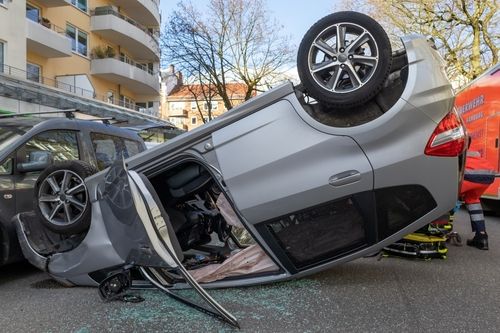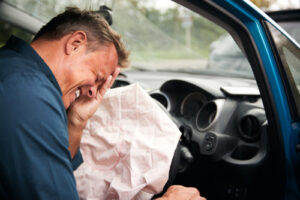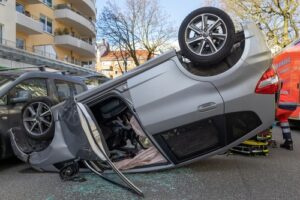
What Should I Do If I Suspect My Car Malfunctioned Before a Crash?
Car crashes happen fast. But sometimes, in the moments just before impact, you may feel something wasn’t right—maybe the brakes didn’t respond, the steering locked up, or the engine suddenly cut off. When a mechanical or electronic failure is suspected, the question becomes more than just who caused the accident. You now have to ask: did your vehicle fail you?
In both Florida and Washington, proving that a car malfunction contributed to a crash can drastically change how liability is assigned. It may involve product liability laws, manufacturer recalls, or even negligence by a repair shop. These cases often require a deep investigation, sometimes involving engineers or auto industry experts.
If you believe your vehicle malfunctioned, knowing what to do next can help preserve evidence, protect your rights, and strengthen your personal injury claim. Whether you’re in Tampa, Seattle, or another city Boohoff Law serves, you don’t have to figure this out alone.
This guide will walk you through the steps to take, how these cases work, and what legal support can do for you. Let’s begin with the first thing you should do after the crash.
Check for Immediate Safety Concerns and Call 911
If your car suddenly malfunctions and causes or contributes to a crash, your first priority should be safety. After any collision—especially one involving a suspected mechanical failure—get to a safe location if possible and call 911. Let the dispatcher know there may have been a vehicle malfunction so the police can make note of it in their report. This early documentation can prove important later if you pursue a claim.
While waiting for emergency responders, try to stay calm and avoid altering the vehicle unless it’s necessary to prevent further danger. If you’re physically able, take photos of the crash scene, focusing on any relevant car parts like your tires, brakes, dashboard warnings, or undercarriage leaks. If you noticed anything wrong before the crash—like strange sounds, delayed braking, or a loss of steering control—write those observations down while they’re fresh in your memory.
In Florida and Washington, both police and insurance companies will look at the evidence collected at the scene when determining fault and liability. By calling 911 and reporting a suspected malfunction early, you give your claim a stronger foundation and help protect your legal options moving forward.
Get a Full Medical Evaluation After the Crash
Even if your injuries seem minor at first, you should always get checked out by a medical professional after a crash. Symptoms from whiplash, head trauma, or soft tissue injuries may not appear immediately, and delays in diagnosis can hurt both your health and your legal case.
Let your doctor know exactly what happened. If your vehicle malfunctioned and contributed to the crash, describe any jerking motions, loss of control, or impact points you experienced. This can help them identify injuries related to those events and document the correct cause in your medical records.
In Seattle, Tampa, and other areas served by Boohoff Law, your ability to pursue compensation for a malfunction-related crash may depend on this documentation. Insurance adjusters often look for ways to downplay claims, and a gap in medical care gives them a reason to argue that your injuries weren’t serious—or weren’t caused by the crash at all.
Early medical treatment also links your injuries directly to the accident, which is key in proving damages. Whether or not you think a mechanical failure was involved, prioritize your health first. Then, once you’re stabilized, you can begin investigating the legal steps to take next.
Preserve the Vehicle in Its Post-Crash Condition
One of the most critical steps after a suspected malfunction-related crash is preserving the vehicle in its current state. Resist the urge to repair, clean, or dispose of the vehicle until it has been professionally inspected. This includes not having it towed to a salvage yard without taking key precautions.
Mechanical failure cases often hinge on expert testimony and forensic evidence. Investigators may examine your car’s brake systems, airbags, tires, steering, electronic modules, or engine components. If you alter the vehicle too soon, vital evidence could be lost—evidence that might prove the malfunction and support your injury claim.
If your car is towed, arrange for it to be stored in a secure location where it can be accessed by a qualified mechanic or legal investigator. In some cases, your attorney can help coordinate this. Make sure to also gather any receipts from prior maintenance or repairs, especially if work was recently performed on the part that failed.
In Florida and Washington, preserving evidence is essential in product liability or negligence claims involving auto defects. Keeping your car untouched gives investigators the chance to properly assess whether a manufacturer, dealer, or mechanic may share responsibility for your crash.
Contact an Experienced Personal Injury Lawyer Early
If you believe a car defect or malfunction contributed to your crash, it’s critical to speak with a personal injury lawyer as soon as possible.
These cases often involve complex questions of liability, especially if you’re dealing with large manufacturers, parts suppliers, or auto repair shops. An attorney can begin preserving evidence, securing expert inspections, and notifying relevant parties on your behalf.
Unlike a simple fender-bender, a malfunction-related crash could trigger product liability laws in Washington or Florida, depending on where the incident occurred. That means your claim may require engineering analysis or consultation with mechanics to prove fault. Attorneys familiar with these cases understand what to look for—and how to build a solid claim.
Additionally, lawyers can help you manage communication with insurance companies. It’s not uncommon for insurers to downplay a malfunction or try to blame the driver. Having legal guidance protects you from making statements that could hurt your case. You don’t have to prove everything on your own.
An attorney can also help determine if you may have a claim against multiple parties—like the dealership, manufacturer, or maintenance company—maximizing your options for compensation while giving you space to focus on recovery.
Understand Potential Liability in Malfunction-Related Accidents
When a mechanical failure plays a role in a car crash, the issue of liability becomes more complicated than in a standard two-car collision. You may not be solely responsible—even if you were driving the car that failed. Depending on the circumstances, several different parties could be held legally liable under Florida or Washington state law.
Here are some examples:
- Vehicle manufacturers: If the malfunction was caused by a design or production flaw.
- Parts manufacturers: If a specific component—like brakes or airbags—was defective.
- Mechanics or repair shops: If they improperly installed or failed to detect a problem.
- Dealerships: If they sold the vehicle with known issues or skipped proper inspections.
In these cases, your attorney might pursue a product liability claim, a negligence claim, or both. Evidence will be needed to establish the chain of responsibility, including maintenance records, expert reports, and sometimes vehicle recall data.
Liability in malfunction cases isn’t always clear-cut. That’s why you shouldn’t assume you’re at fault just because the malfunction happened in your own car. With the right legal support, you can determine whether someone else’s oversight or defect contributed to the crash—and pursue appropriate action.
File an Insurance Claim but Be Careful What You Say
After a malfunction-related accident, you still need to notify your insurance company—but you should do so carefully. Insurance adjusters are trained to protect the company’s bottom line, not yours. If you tell them too much or frame the issue the wrong way, they might try to shift all the blame to you or deny parts of your claim.
It’s usually best to notify your insurer of the crash factually—date, time, location, and that you suspect a vehicle malfunction may have played a role. Avoid admitting fault or offering theories about what went wrong. Simply let them know you are in the process of investigating the issue.
If you’re contacted by another driver’s insurer or a third party involved in the crash, do not give a recorded statement without consulting an attorney first. What you say could be used against you later, especially if the malfunction is still being verified.
In Florida and Washington, comparative fault laws may apply, and the other party could try to say you ignored warning signs. A lawyer can help manage communication with all insurance companies to ensure your rights are protected while your case is being built.
Common Injuries and Why Legal Help Matters
When a car malfunctions—whether it’s the brakes, steering, or a defective airbag—the injuries that follow can be serious. Unlike a typical accident caused by human error, crashes tied to mechanical failure often occur without warning and at full force. Drivers and passengers don’t have time to brace or slow down. This can lead to more severe trauma and longer recovery times.
Some of the most common injuries in these types of crashes include:
- Spinal cord injuries
- Broken bones or crushed limbs
- Traumatic brain injuries (TBIs)
- Severe whiplash
- Burns or lacerations from engine fires or airbag explosions
If a manufacturer, repair shop, or dealership failed to ensure the vehicle was safe, you might have grounds to hold them accountable. But these are not easy cases to navigate alone. You may need mechanical inspections, expert witnesses, and strong evidence to prove the vehicle was defective.
A personal injury lawyer can help coordinate these efforts while you focus on healing. They’ll know how to investigate the root cause of your injuries and connect them to the malfunction. That connection can make all the difference when seeking fair compensation for medical care, lost wages, and long-term impact.
The Insurance Company Is Not on Your Side
One of the biggest mistakes injured drivers make is assuming the insurance company is there to help. In reality, their job is to reduce payouts—not make sure you’re treated fairly. This is especially true in complicated cases involving vehicle malfunctions or possible product liability. When multiple parties are involved, insurers often try to deflect blame, twist statements, or minimize claims.
If you tell the insurer, “I think my brakes failed,” you might assume they’ll investigate—but they may instead look for a reason to deny your claim. They may say the failure was due to lack of maintenance or driver error. Without legal protection, it’s easy to get cornered or pressured into accepting less than you deserve.
In both Florida and Washington, insurance adjusters know the law and may use your unfamiliarity with it to their advantage. That’s why it’s vital to speak with a lawyer before engaging in back-and-forth with any insurer.
A personal injury lawyer can step in, handle communication, and advocate for your rights. They’ll make sure your vehicle is inspected appropriately and that your words aren’t used against you later on.
Call Boohoff Law for a Free Consultation
If you think a mechanical issue played a role in your car accident, you don’t have to face the aftermath alone. Boohoff Law has the experience to help you understand your options and take the pressure off your shoulders. We assist clients in both Florida and Washington and can help investigate whether a defect, poor maintenance, or faulty repair caused your crash.
Reach out to our team for a free consultation. We’ll listen to your story, offer clear next steps, and help you protect your rights from the very beginning.
Call (813) 445-8161 in Tampa, (813) 321-7878 in Brandon, (941) 888-0848 in North Port, or (877) 999-9999 in Seattle.
Frequently Asked Questions (FAQs)
What if the crash already damaged the evidence of the malfunction?
A vehicle inspection by a qualified expert may still detect signs of what failed. A lawyer can help preserve and assess what remains of the vehicle.
Can I still file a claim if no recall was issued?
Yes. Many defective parts are never recalled, but that doesn’t mean you can’t hold someone accountable. Your lawyer may consult with engineers or expert witnesses.
Do I have a case if the malfunction happened in someone else’s car I was riding in?
Possibly. You may be able to bring a claim against the vehicle owner, a third-party mechanic, or even the manufacturer, depending on the details.
What’s the deadline for filing a claim in these situations?
Time limits vary by state. In Florida, the statute of limitations for injury claims is typically two years. In Washington, it may be three years. It’s always better to act quickly.
Will hiring a lawyer cost anything upfront?
Most personal injury firms, including Boohoff Law, work on a contingency fee basis. This means you don’t pay anything upfront — the lawyer only collects a fee if they win your case.











